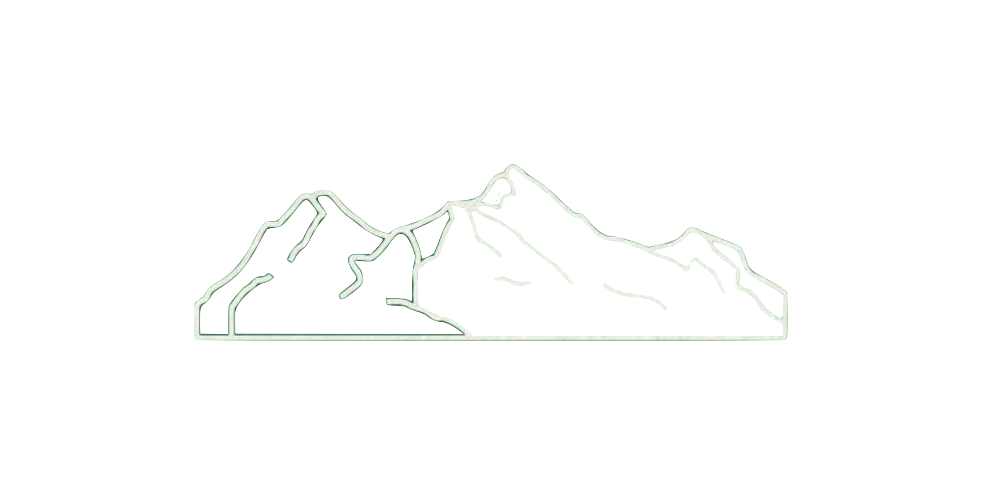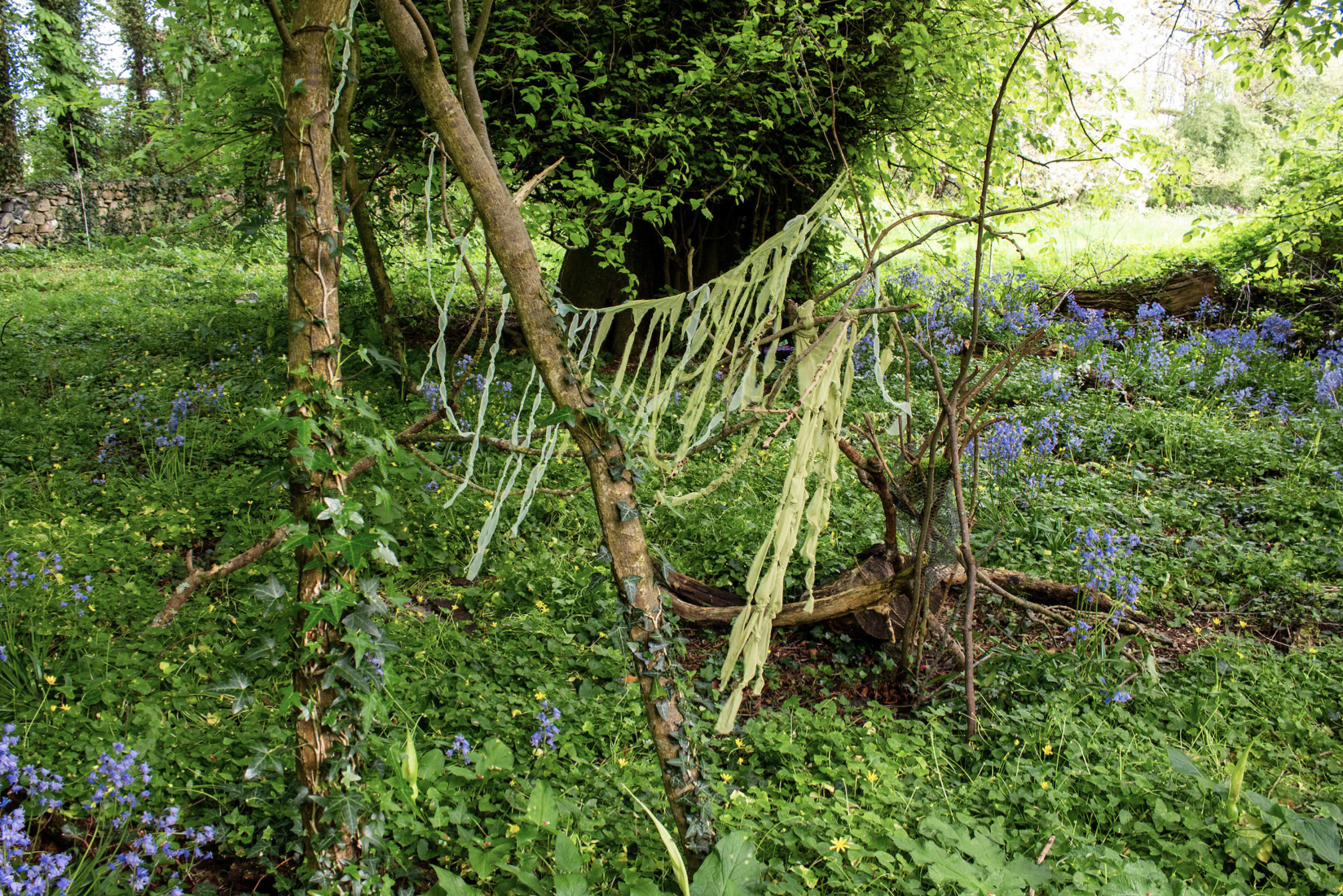
Five artists identified as part of the COAL 2024 Prize call for projects are invited to the five partner sites of the European Transformative Territories program to experiment locally with transformative artistic practices.
Transformative Territories joins forces with the COAL Prize for a special edition dedicated to transformative artistic practices, to mark the 15th edition of the Prize to be held in 2024. Created in 2010 by the COAL association, the COAL Prize is a vehicle for identifying, promoting and disseminating artists around the world who bear witness to, imagine and experiment with solutions for transforming territories, lifestyles, organisation and production. Together, these artists contribute to making change visible, to building a new collective narrative, a developing common heritage, a positive and necessary framework for everyone to find the means and inspiration to implement changes towards a more sustainable and fairer world.
With Se Transformer, the COAL 2024 Prize calls for culture to be seen as the breeding ground for our relationship with nature, and thus our greatest asset for bringing about a radical and sustainable change in society. By cultivating resistance and resilience in the face of the world’s Great Transformation, this fifteenth edition of the COAL Prize underlines that artists are not only actors of change, they give us the power to embody it and thus answer Gandhi’s call: “Be the change you want to see in the world”.
FIVE ARTISTS WIN THE TRANSFORMATIVE TERRITORIES AWARD
This Creative Europe 2024-2026 program, led by COAL with five European partners, explores the role of the arts and artistic practices in transforming territories through transnational research and creation, collective events, support for a scientific committee, and the creation and dissemination of methodological tools. The five winning artists in the Transformative Territories category of the COAL 2024 Prize will be invited to take up residencies in five partner venues that will act as laboratories for transformative artistic practices on a territorial scale.
Martha Fely (France) will be in residence at Inland (Spain); Nuno da Luz (Portugal) will be in residence at Tavros (Greece); Margherita Pevere (Italy) will be in residence at ITM (Portugal); Caroline Le Méhauté (France) will be in residence at Zone Sensible (France); Lwrds Duniam (Peru) will be in residence at ArtMill (Czech Republic).
Martha Fely (France) will continue to develop her project From mountain to mountain during her residency at Inland (Spain)
From mountain to mountain project involves a period of on-site research and production at the Inland Village in the North of Spain, part of the Transformative Territories network grants. During her residency and with a view to giving particular attention to details, Martha is looking to learn and show how a territory is inhabited. Based on the knowledge of the Pyrenees and mountain cultures, both at the heritage inmaterial level, such as habits, managements and forms of relations with their environment, and also, at the micro-biological level, the cultures that ferment the milk, the project will involve developing the forms of Cheese making from the Pyrenees in the context of Inland Village to see how the local cultures transform them.
Martha Fely graduated from the École Supérieure d’Art de Clermont Métropole in 2023. She has also been a shepherd and cheese-maker since 2020. She co-curated the exhibition à coté de for In extenso in Clermont-Ferrand. With a sensitive relationship to materials, she transcribes know-how, anecdotes, gestures, intuitions and techniques often gleaned from the agricultural or rural environment. She transforms them into poetic objects and tools, shifting the balance between poetry and technique.
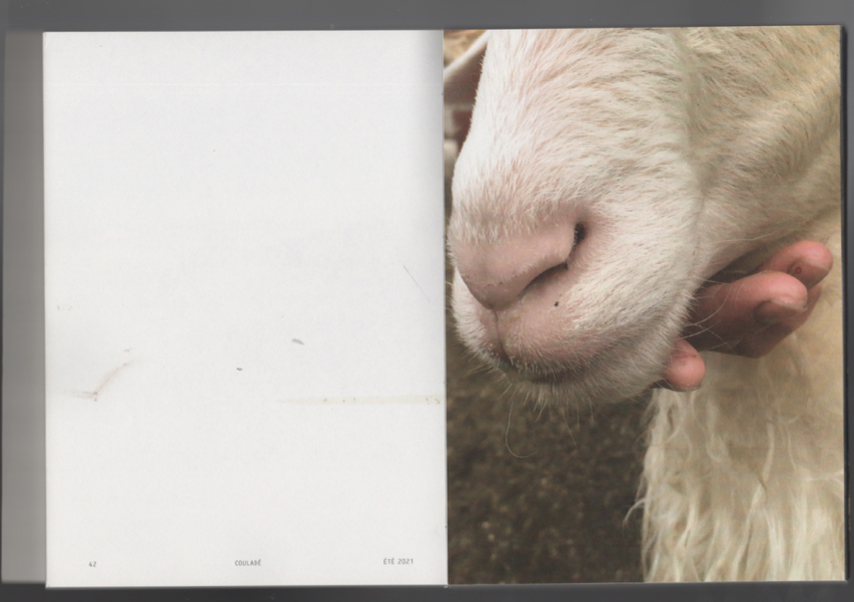
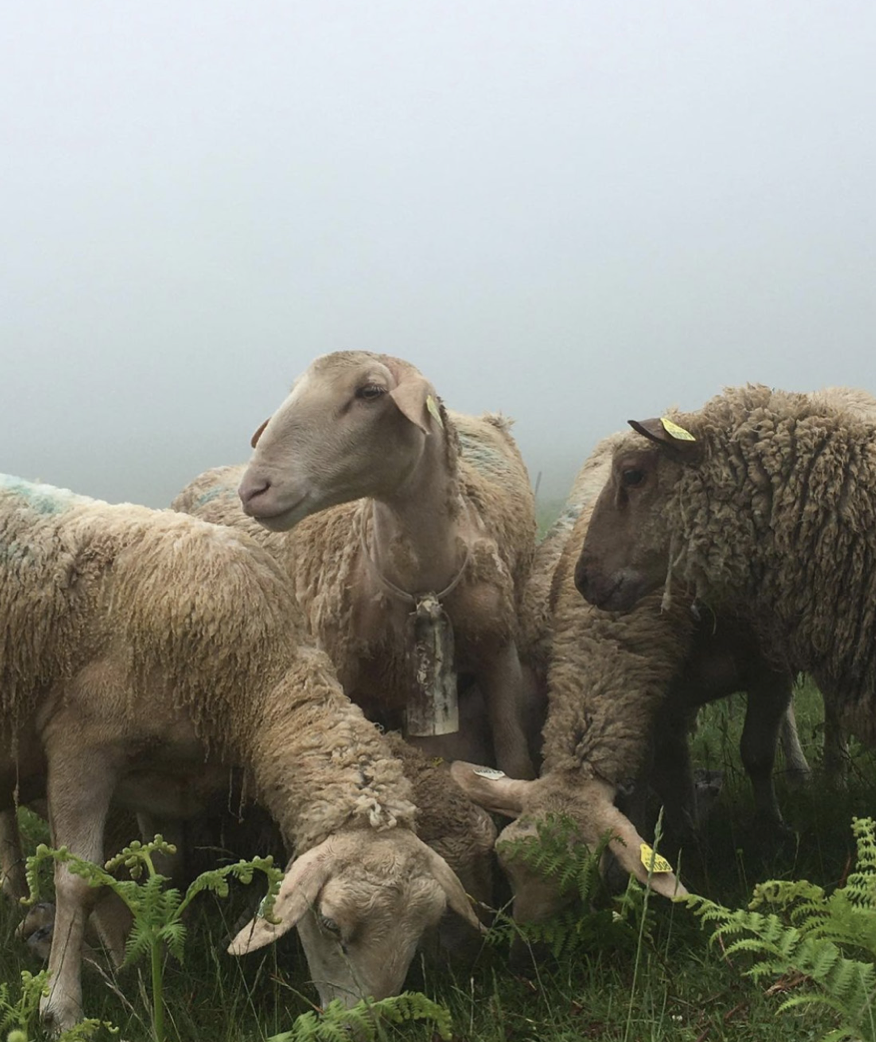
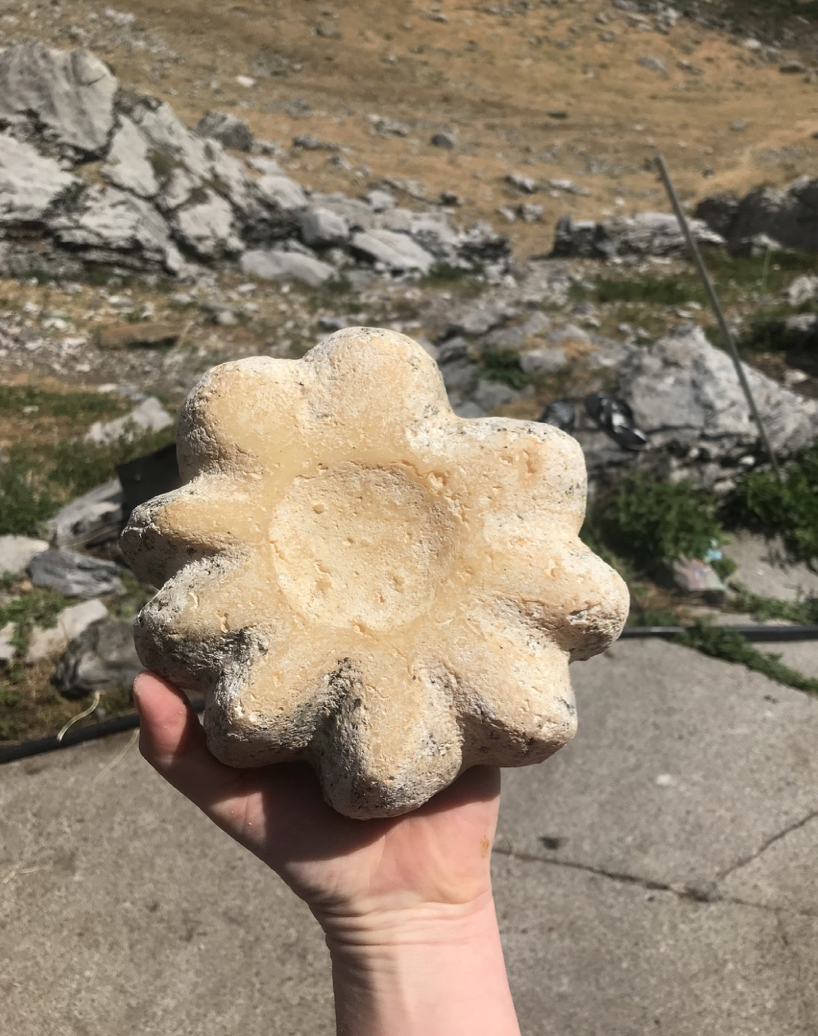
Nuno da Luz (Portugal) will continue to develop his project Feral Songbook during his residency at Tavros (Greece)
To bring change that is inseparably individual and communal, with those other than oneself and those other than humans, by trusting in the potential of experience in all its dimensions, is the approach that Nuno da Luz proposes to explore through the study of the accelerated transformations of urban sonospheres in Europe. He is particularly interested in the massive implantation of an exotic bird in our European cities: the parakeet. With Feral Songbook, the artist has devised a sound pedagogy manual detailing a series of collective improvisation practices that appropriate the parakeets’ ‘singing territories’ as the ultimate mode of collaboration and polyphonic cooperation.
The work of Nuno da Luz, artist and researcher born in Lisbon in 1984, undulates between the ecologies of noise, attentive listening and book creation. In 2015, he took part in the Master’s Programme for Experimentation in Arts and Politics at SciencesPo Paris. In residence at the Cité Internationale des Arts in 2024, he is currently carrying out a doctoral research project at the UCP School of the Arts (Porto), entitled “Echologies of Noise”, and regularly exhibits in Europe.
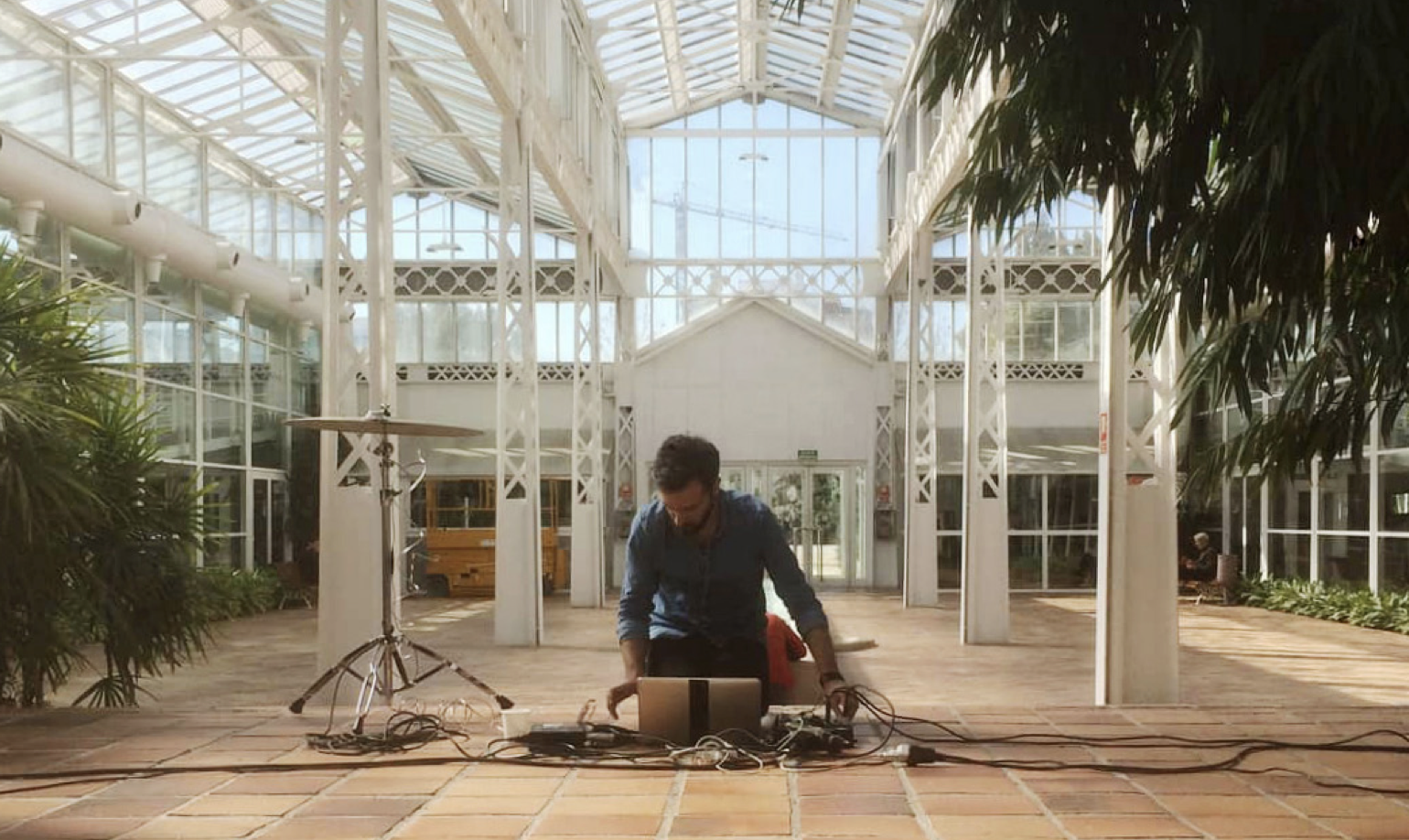
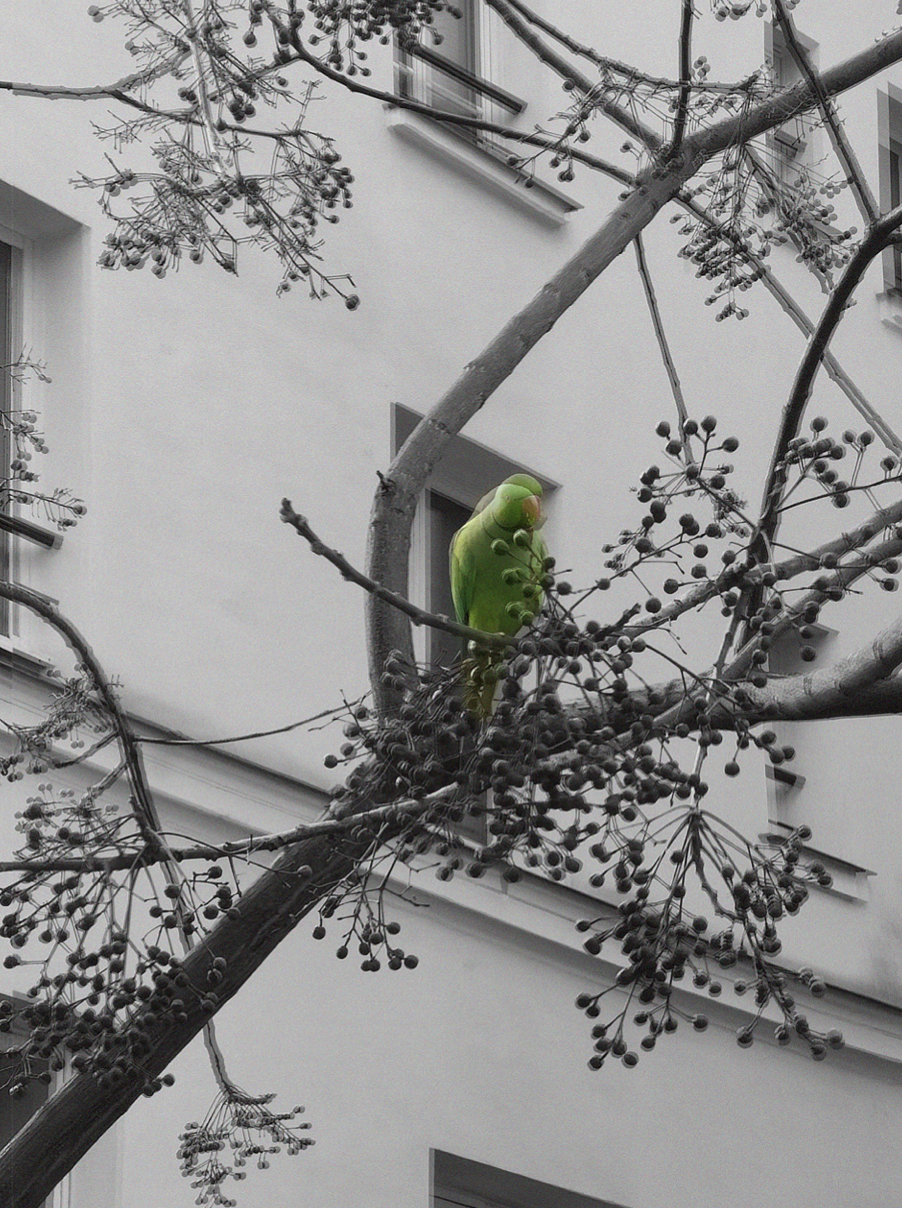
Margherita Pevere (Italy) will continue to develop her project Lament during her residency at ITM (Portugal)
Lament is a new performance and installation belonging to Pevere’s long-term project untaming death, which explores death from a more-than-human perspective in times of environmental disruption. In this context Lament focuses on the aftermath of wildfires, occurrences with complex ecological roles and with noxious effects on unbalanced ecologies. Stepping back from data-driven responses related to restoration and monitoring, Lament embraces overlooked stories of transformations in post-wildfire environments along two trajectories: with a focus on soil and through community engagement. The project reflects on wildfires and the anthropogenic shifts in fire regimes by inquiring into more-than-human becoming in soil.
Margherita Pevere is an internationally acknowledged artist and researcher working across biological arts and performance with a distinctive visceral signature. Her inquiry hybridizes biotechnology, ecology, queer and death studies to create arresting installations and performances that trail today’s ecological complexity. Marguerita has completed a practice-based doctorate in Artistic Research at Aalto University, Department of Arts, Design and Architecture. With Marco Donnarumma and Andrea Familari, she co-founded the artists’ group Fronte Vacuo. She is member of the Finnish Bioart Society, of The Queer Death Studies Network and of The Posthumanities Hub.
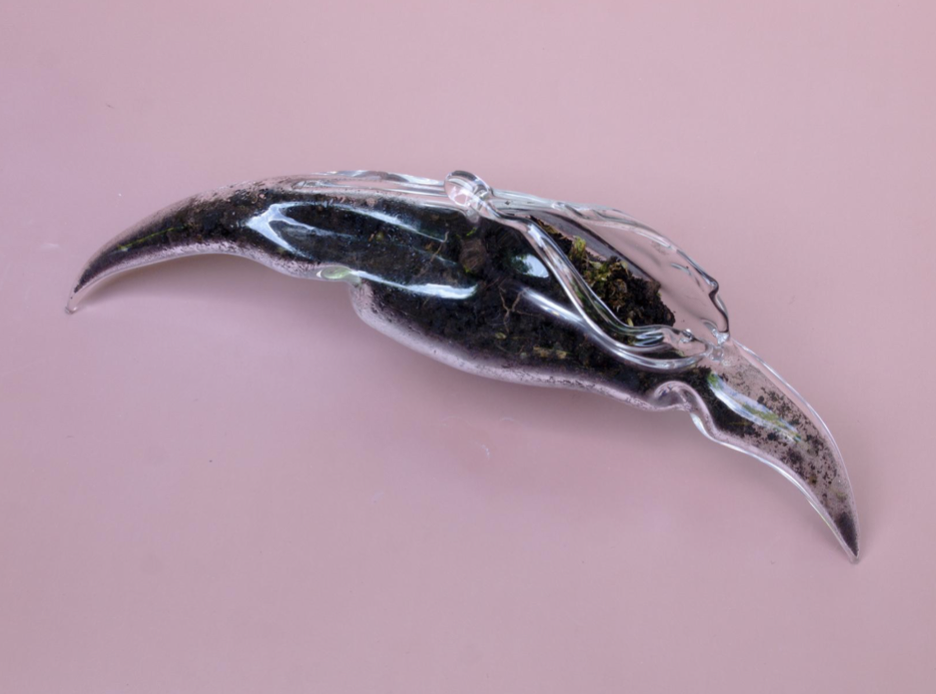
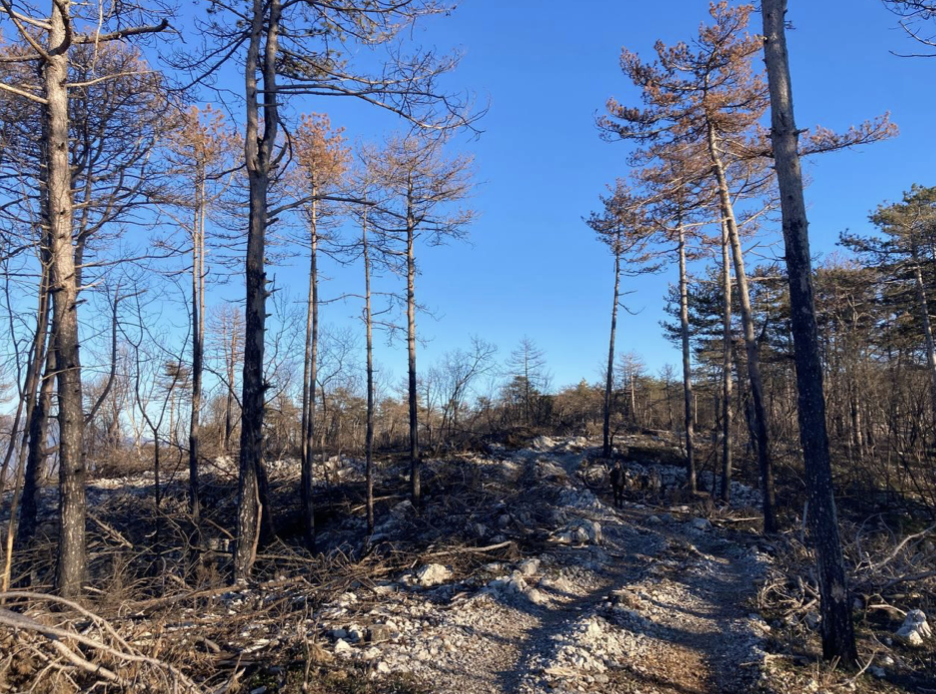
Caroline Le Méhauté (France) will continue to develop her project Tellus project during her residency at Zone Sensible (France)
In her residency at Zone Sensible, Caroline Le Méhauté investigates the quality of Saint-Denis soil. Observation and remediation tools are set up in situ through a collective project inviting residents to share knowledge and work together. In a second phase, the artist puts earth into perspective as a building material that can be reintegrated into contemporary society. She is interested in combining traditional ancestral building techniques with contemporary ones. Local residents will be invited to take part in the process of shaping and constructing the work in raw earth, salvaged from the excavated soil of local Grand Paris construction sites. Taking the form of a bank of phyto-remediatory seeds (plants with soil-cleaning virtues), this human-scale architecture invites birds to spread them, in Zone Sensible and beyond, suggesting a concrete solution for the ecological transformation of the area. At the same time, Caroline Le Méhauté is pursuing research into ways of reusing phyto-remediation plants once the pollutants have been captured.
Caroline Le Méhauté graduated from the Ecole supérieure des Beaux-Arts de Marseille and have a Master’s degree in Plastic Arts from Toulouse Jean-Jaurès University. She lives and works in Brussels and Toulouse. Her work has been shown in solo and group exhibitions, including the Biennial of young artists from Europe and the mediterranean in Italy, the Musée National du Burkina Faso (Ouagadougou) and Marseille-Provence 2013 – Capitale Européenne de la Culture. His works are included in public collections such as the Fonds Communal d’Art Contemporain (Marseille).
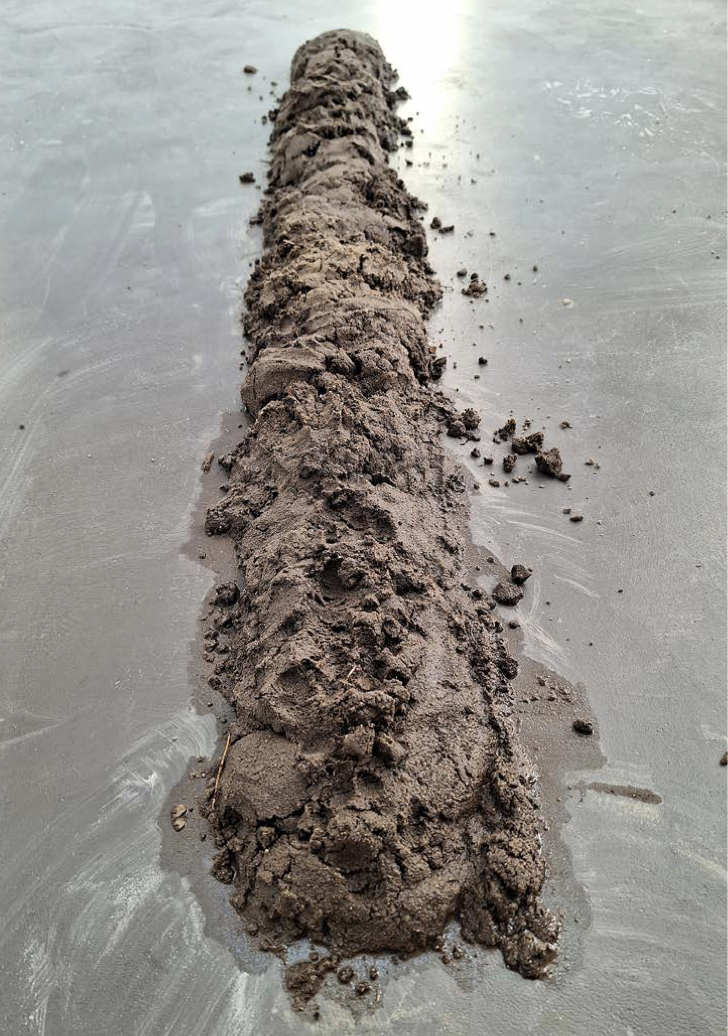
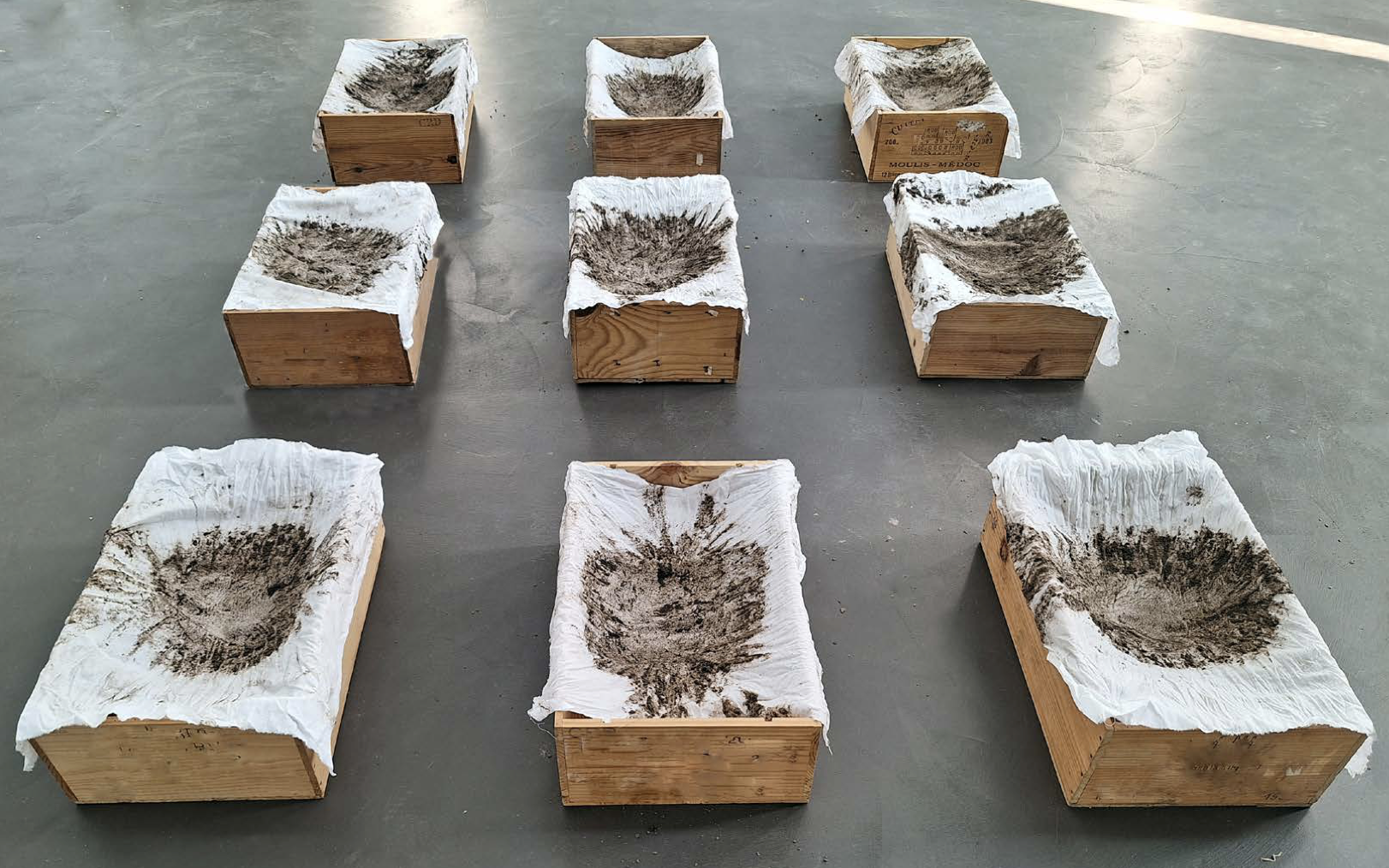
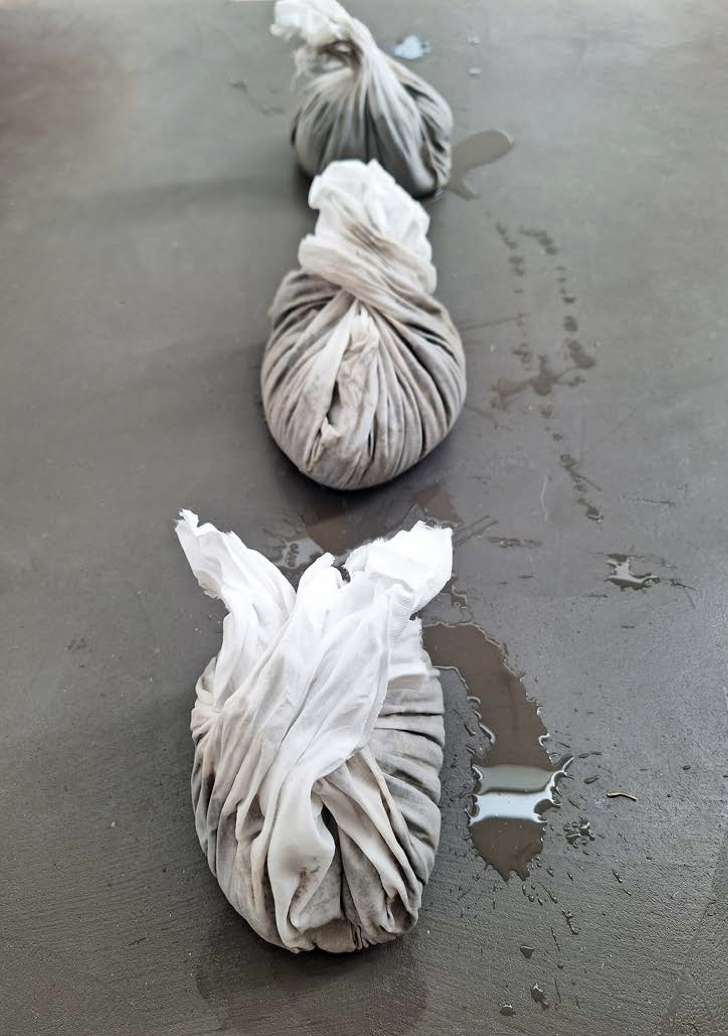
lwrds duniam (Peru) will continue to developp their project Khipucamayoc: weaver of arboreal entanglements during their residency at ArtMill (Czech Republic).
In their project “Khipucamayoc: weaver of arboreal entanglements” lwrds uses the medium of the Khipu for exlopring the emancipatory possibilities of land-based for community-engaged ancestral healing. A Khipu is an Indigenous Andean technology, a communication device and mnemonic system of string and knots. As means for storytelling, archiving knowledge, and unlocking embodied memories, the Khipu is an archival instrument ripe for queering in connection to Forest Magic. The project involves site-specific ritual performance and sculptural installations with large-scale Khipus in multiple forest areas with which the artist feels in touch.
lwrds duniam is an interdisciplinary artist, designer, independent researcher, and community educator living and creating in Tkaronto. Born in Callao, Perú in 1984, lwrds has been calling Turtle Island home since 2002. Their ARTivist practice is informed by Decolonial Critical Theory and is anti-racist, anti-oppressive, sex-positive, trauma-informed, and grounded in disability justice.
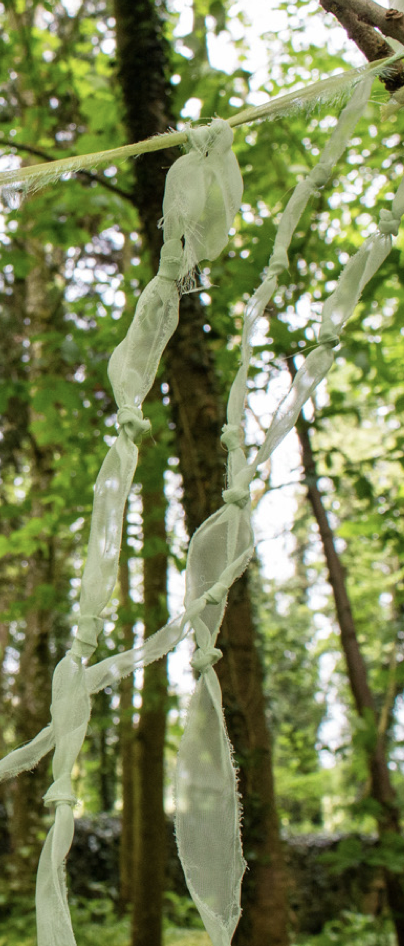
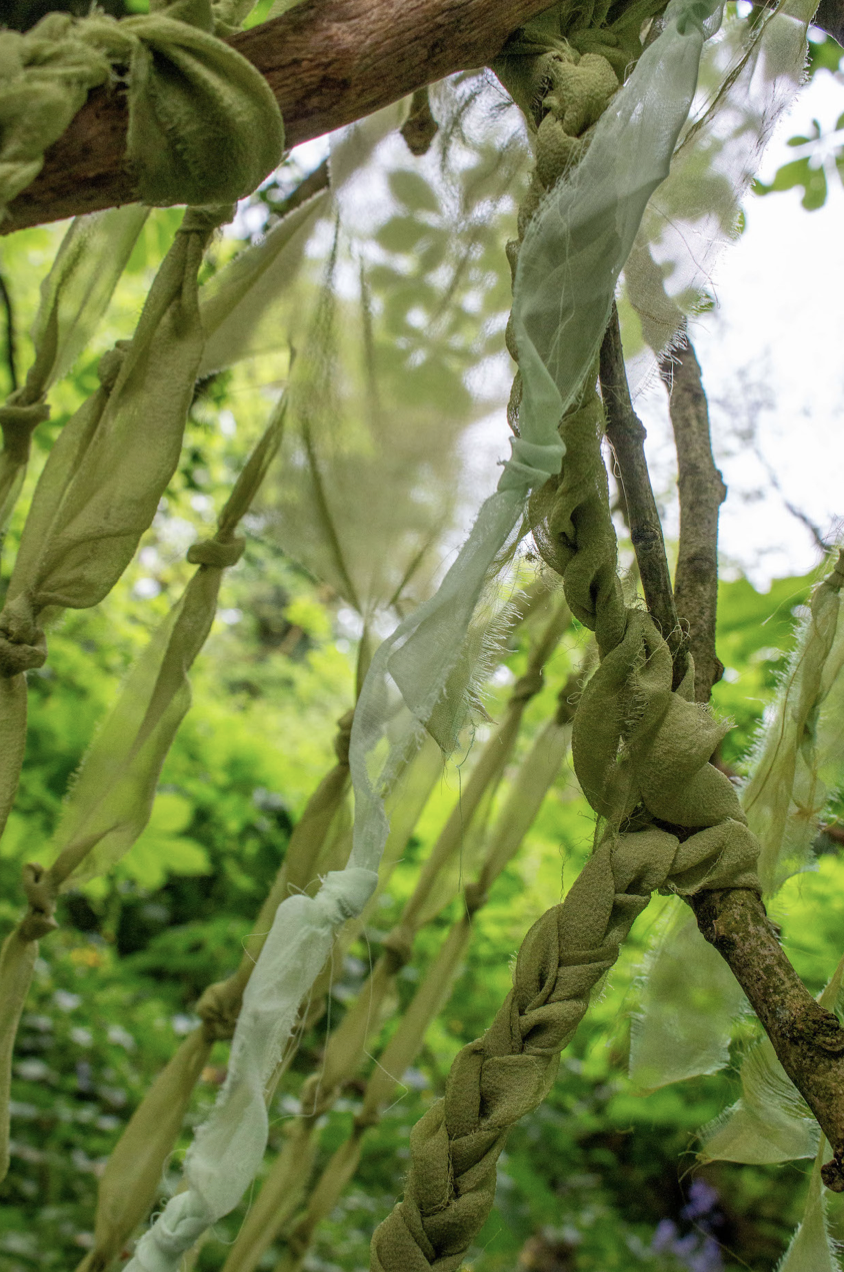
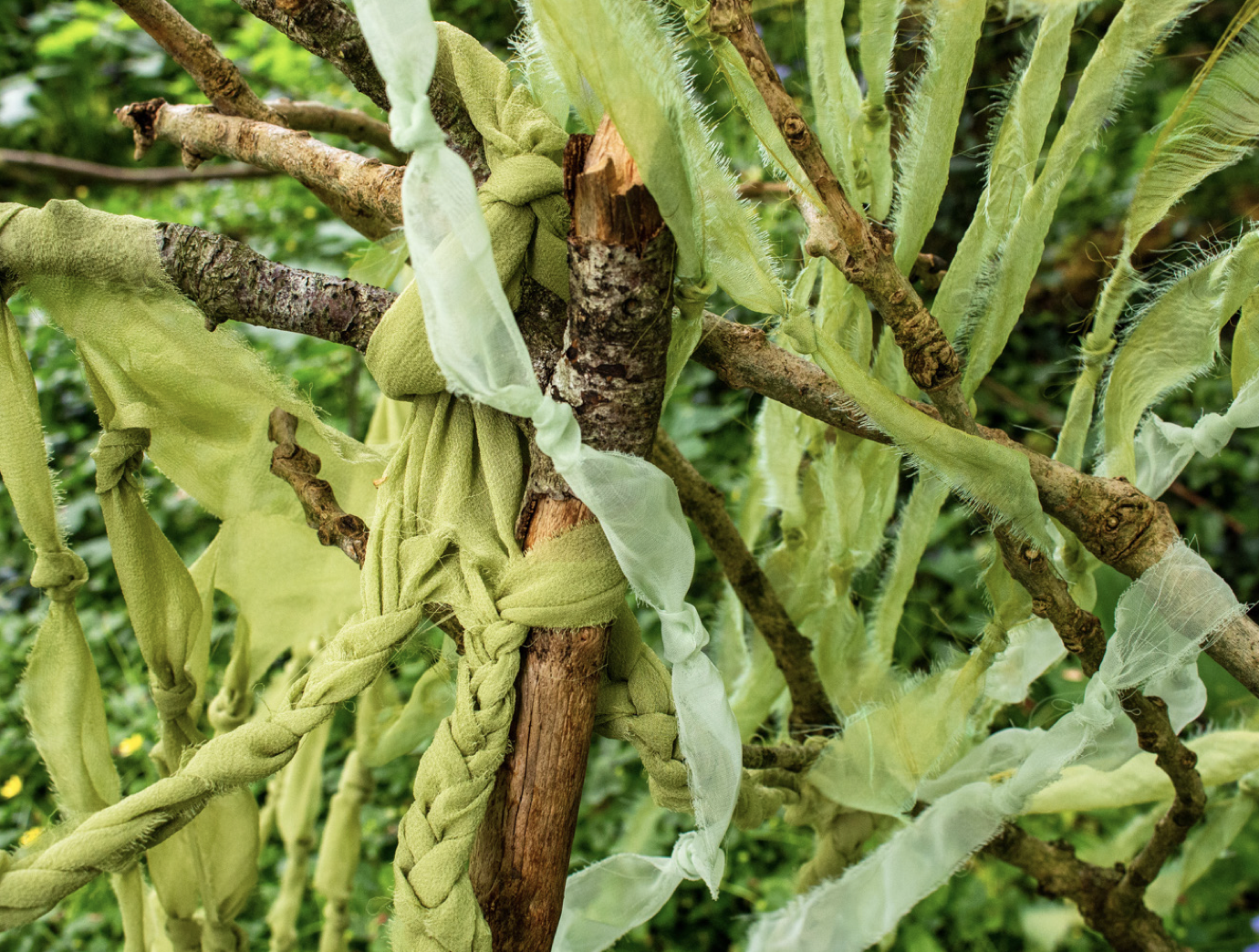
A catalogue of some one hundred artists will also be published on the Transformatives Territories website in the autumn.




